Australian healthcare training helping Vietnam's wellbeing
From July 22-25, the Australian Trade and Investment Commission (Austrade) hosted a vocational education and training delegation to Vietnam, focusing on partnership opportunities in the healthcare sector by matching Australia’s training advantages with industry needs.
Following the visit by Ho Chi Minh City’s chairman Phan Van Mai to Australia in mid-May, there are now more prospects of collaborations between Ho Chi Minh City Department of Health, universities, and colleges with the Vietnam-Sydney Institute, which was launched in June.
Australian institutions and the University of Medicine and Pharmacy are now training healthcare professionals, while there is also joint research taking place with Pasteur Institute, and regular visits from the Australian Association of Nursing to children’s hospitals in knowledge exchange conferences.
Austrade has acknowledged that, as Vietnam experiences significant demographic and socioeconomic shifts, the demand for comprehensive healthcare services is rising, particularly in elderly care.
However, Vietnam's elderly care sector is still in its early stages compared to more developed countries. While there has been some progress, such as the establishment of nursing homes and assisted living facilities, the sector faces several challenges.
Vietnam's demographic landscape is undergoing rapid transformation. The percentage of the population aged 60 and above is projected to increase from 12 per cent in 2019 to 25 per cent by 2050. This shift has led to an increased demand for elderly care services, as older individuals often suffer from non-communicable diseases and multiple comorbidities, such as cardiovascular diseases, cancer, mental disorders, and neurological diseases.
The healthcare system is striving to keep up with these demands by developing new facilities that adhere to international standards.
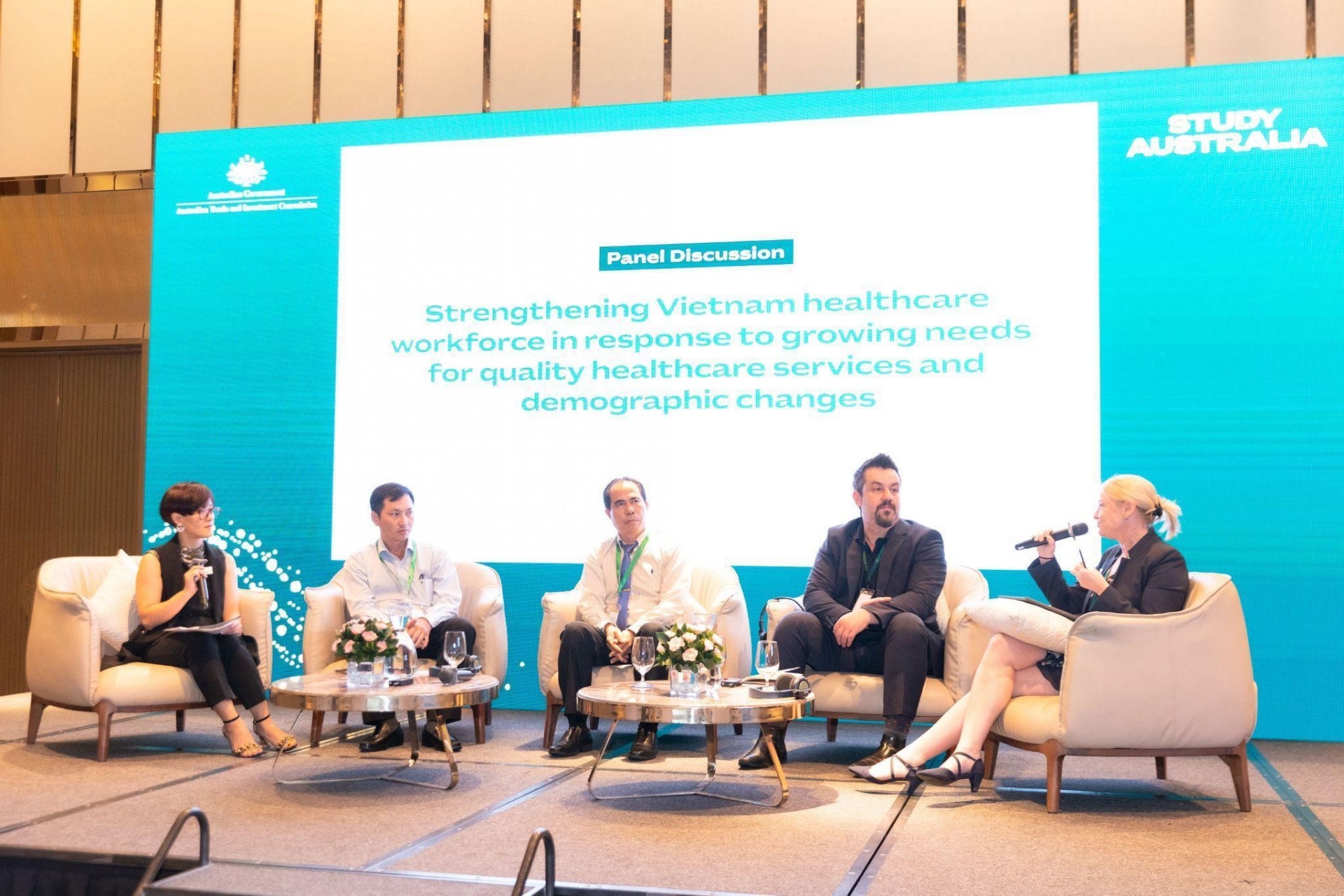 |
| Discussion session on the healthcare sector in Vietnam at a seminar held by the Australian Trade and Investment Commission |
The Vietnam government has established a supportive legal environment that encourages growth of the healthcare sector. This creates opportunities for the development of facilities to provide high-quality care for both domestic and international patients.
According to the Vietnam National Tourism Administration, the US magazine Travel + Leisure reported in May that Vietnam is among the top 10 most affordable retirement destinations. Therefore, healthcare tourism and the influx of foreign retirees also contribute to the expansion of this sector, highlighting the country’s potential as an excellent medical hub in the region.
However, there is a significant shortage of trained healthcare professionals specialising in geriatric care, and low pay and demanding work exacerbate this challenge. According to the Ministry of Health, the current capacity for training doctors nationwide is about 13,000 graduates per year.
By April 2024, there was already a labour force shortage of 23,000 workers across preventive medicine and the public health sector.
To achieve the government’s goal of 35 doctors, 4.5 pharmacists, and 90 nurses per 10,000 people by 2050, Vietnam needs 20,000 new graduates per year, Austrade says.
Of great assistance can be Australia's vocational education system, which is highly regarded internationally. It is characterised by strong industry alignment, flexible delivery and robust systems which ensure consistent quality outcomes for learners. Australian graduates are in demand in research and healthcare institutions across the world. Work-integrated learning, including work experience, is part of most courses.
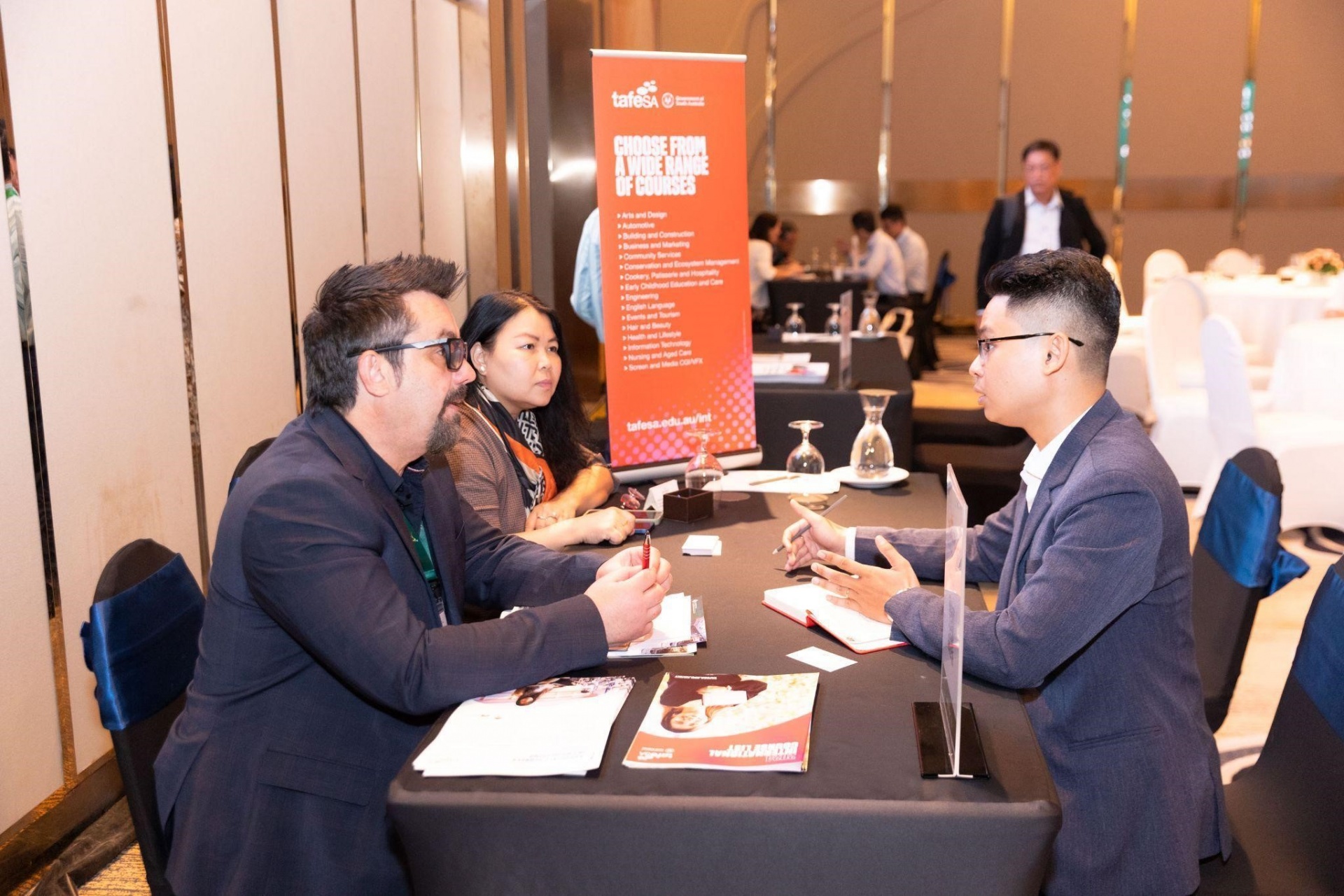 |
| A networking session between Australian training organisations and potential partners in Vietnam |
Vietnam and Australia have already had a strong education tie for 50 years. Starting with a bilateral scholarship programme, the relationship in the education sector has rapidly developed in terms of both depth and breadth.
There is a growing number of Australian institutions with programmes delivered locally in Vietnam and research collaborations with Vietnamese institutions. Currently, there are 350 collaborative training programmes, which include articulation and joint training programmes between Australian and Vietnamese institutions.
Over 100,000 Vietnamese alumni graduated from Australian education institutions currently work in Vietnam.
By leveraging Australia’s training capabilities, Vietnam can enhance the country's healthcare workforce, ensuring that professionals are well-equipped to meet the rising demands for international standard elderly care services.
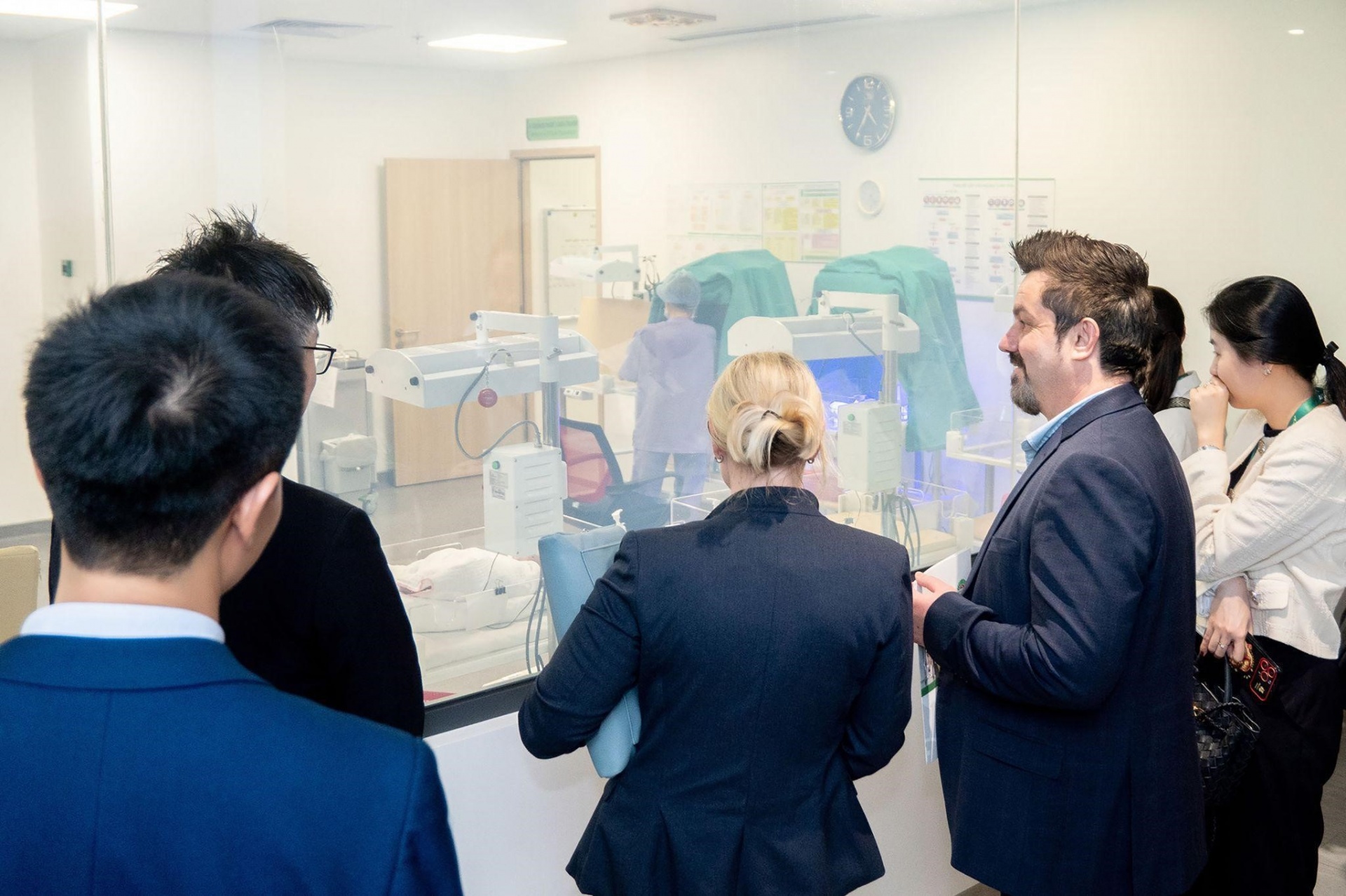 |
| Australian Education Delegation visits hospitals and medical facilities in Hanoi |
Visit StudyAustralia to explore Australia’s vocational education and training system:
https://www.studyaustralia.gov.au/vi/plan-your-studies/vocational-education-and-training
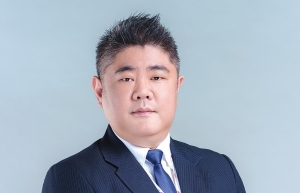 | Another step forward in Australia-Vietnam relations Australian industries and businesses are taking a close-up approach to the Vietnamese market through establishment of the Australian Industry Hub Vietnam (AusHub). VIR’s Bich Ngoc talked with AusHub manager Edwin Law on his assessment of the platform after a year of operation. |
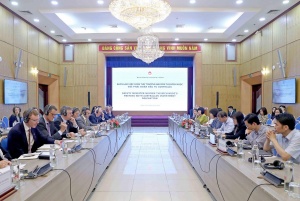 | Australian firms show interest in Vietnam’s green transition Further cooperation and investment in science, technology, trade promotion, innovation, digitalisation, and the green transition were all topics that were discussed during an Australian business delegation's visit to the Ministry of Planning and Investment (MPI) on June 4. |
What the stars mean:
★ Poor ★ ★ Promising ★★★ Good ★★★★ Very good ★★★★★ Exceptional
 Tag:
Tag:
Related Contents
Latest News
More News
- Agro-forestry and fisheries exports jump nearly 30 per cent in January (February 09, 2026 | 17:45)
- Canada trade minister to visit Vietnam and Singapore (February 09, 2026 | 17:37)
- New tax incentives to benefit startups and SMEs (February 09, 2026 | 17:27)
- Vietnam forest protection initiative launched (February 07, 2026 | 09:00)
- China buys $1.5bn of Vietnam farm produce in early 2026 (February 06, 2026 | 20:00)
- Vietnam-South Africa strategic partnership boosts business links (February 06, 2026 | 13:28)
- Mondelez Kinh Do renews the spirit of togetherness (February 06, 2026 | 09:35)
- Seafood exports rise in January (February 05, 2026 | 17:31)
- Accelerating digitalisation of air traffic services in Vietnam (February 05, 2026 | 17:30)
- Ekko raises $4.2 million to improve employee retention and financial wellbeing (February 05, 2026 | 17:28)




























 Mobile Version
Mobile Version